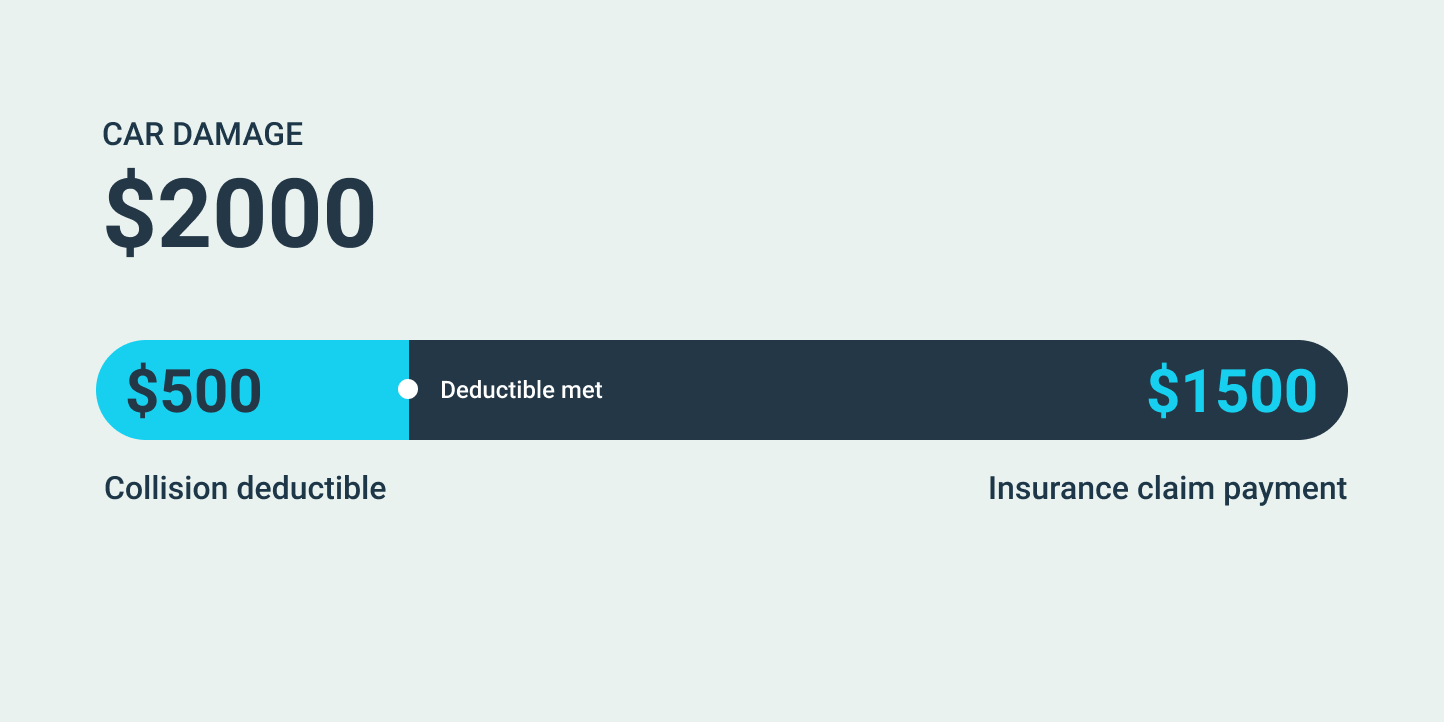Deductible Basics

What Is an Insurance Deductible?
An insurance deductible is defined as the out-of-pocket amount you're required to pay toward a covered claim. Depending on the policy type — homeowners, renters, auto, or health — you may have to pay more than one deductible. You typically get to choose your deductible amount when you purchase the policy. Selecting a higher deductible can reduce your rate and selecting a lower deductible can reduce the out-of-pocket amount you pay when you file a claim.
How do deductibles work?
When shopping for insurance, you'll find that deductible amounts vary from policy to policy. There's a correlation between the deductible and your insurance rate. If you have a higher deductible, your premiums will be lower. Conversely, with a lower deductible, you can expect your premiums to be higher.
Important note: When and how a deductible applies can vary based on the type of policy. Learn more in the section below on the different types of deductibles.
A higher deductible means lower premiums. A lower deductible means higher premiums.
What to consider before choosing an insurance deductible
When selecting insurance, you have the option of choosing a lower or higher deductible. Each has its positives and negatives, so consider these factors before making a final decision:
Low deductible
If you have a history of filing multiple claims in a short period of time, a low deductible may be a good option. Your out-of-pocket cost will be lower for each claim, possibly saving you more in the long run. However, the higher premium may cost you more than choosing a higher deductible if you go years without filing a claim.
High deductible
This may be a good option if you have a history of filing very few or no insurance claims. If you do file a claim, you'll be responsible for paying more toward the deductible, but you'll also enjoy lower premiums. However, you may need more cash on hand for repairs if you end up with a big claim.
When choosing between a low or high insurance deductible, think about how comfortable you are with taking financial risks. If you don't want to incur a larger out-of-pocket expense if there is a claim, a lower deductible may be your best bet. If you're able to financially handle the amount of the deductible if there's a claim and would rather save money on your premiums, a higher deductible may be your best bet.
Important note: If the repair estimate for your car or home is less than your deductible, it's generally not worth filing a claim.
Types of insurance deductibles
Auto insurance deductibles
Auto insurance deductibles apply to each claim you file, which means that you'll pay the deductible stated in your policy every time you file a claim. If the damages don't meet the deductible's threshold, you'll pay for the costs out of pocket. Usually, you'll only pay a deductible on your comprehensive and collision coverage, but some comprehensive claims may not require a deductible, such as windshield claims in some states. You may also have a deductible on your uninsured motorist property damage and personal injury protection coverage. A deductible doesn't apply to claims filed under your liability coverage.
Pro tip: Many insurers offer a disappearing deductible program for those who drive accident and violation-free. This type of program allows your deductible to decrease or even be waived altogether in some instances. You can also find disappearing deductibles for other policies, including RV, motorcycle, and boat insurance.
Property insurance deductibles
Homeowners, renters, and condo insurance deductibles are similar to auto deductibles — you'll pay a deductible each time you file a claim. Since damages to your home tend to be pricier, paying a lower deductible can reduce the larger out-of-pocket costs and soften the financial blow of repairs.
Health insurance deductibles
Unlike auto and property deductibles, your health insurance deductible is the amount you must spend out of pocket before your insurance pays for most types of care. Once you hit your deductible, your insurance starts paying for a portion of your covered medical expenses. Some health plans may even have separate deductibles for certain categories, such as in-network or out-of-network care. Health insurance deductibles apply on an annual basis, which means your deductible will reset when your policy renews.
For example, if you have a $2,000 deductible and spend that much on healthcare during the year, your insurance will start paying for a portion of any subsequent covered medical bills until the end of the year. The next year, your deductible will apply again, and you'll need to spend $2,000 on medical expenses before your insurance starts covering these expenses. Note that most policies have a maximum out-of-pocket limit as well, beyond which your insurer generally covers 100% of your eligible medical bills. In addition, certain expenses might be covered by a health insurance plan regardless of whether or not you have met the deductible. Learn more about how health insurance works.
Other insurance types
Deductibles also apply to other types of insurance and even some protection plans. Here are a few other types of insurance/plans and how their deductibles work:
- Boat, motorcycle, & RV insurance: All have deductibles that may apply to claims filed under comprehensive and collision coverage. In some cases, a deductible may apply to uninsured motorist property damage and personal injury protection coverage claims.
- Pet insurance: Typically includes an annual deductible, like health insurance.
- Home warranty: Includes deductibles that are paid per claim, like auto and home insurance.
